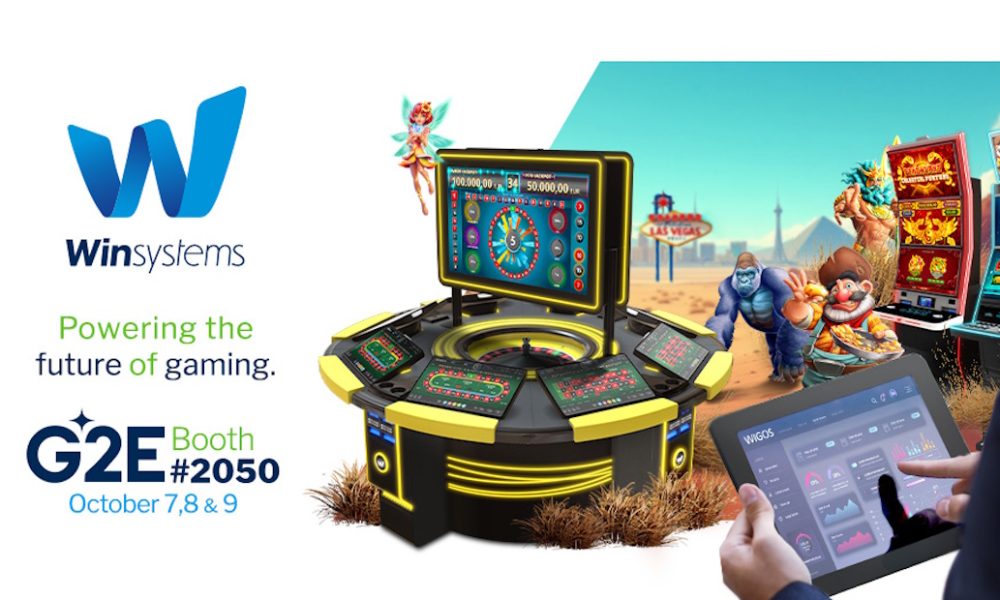

Latest News
Sports Technology Market to Reach $25.70 Billion by 2030 – Exclusive Report by Meticulous Research®
According to a new market research report titled, ‘Sports Technology Market by Offering (Wearables, Digital Signages, Cameras, Smart Stumps & Bails, Snicko/Edge Detector, VAR, Sports NFT, Tracking Systems, Sports Analytics), Technology, Sport, End User, and Geography – Global Forecast to 2030’, the sports technology market is projected to reach $25.70 billion by 2030, at a CAGR of 26.2% during the forecast period 2023–2030.
The growth of the sports technology market is driven by the increasing adoption of fan engagement technologies, increasing investments in sports data analytics, athlete tech, and performance optimization, in-venue technology, gambling & gaming, and recovery health and home fitness, increasing number of sports events, and growing demand for data-driven decisions and operations.
The increasing emergence of sports leagues & events with large prize pools and the increasing adoption of AR/VR for creating near-perfect training environments are some of the factors which are expected to offer significant growth opportunities for players operating in the sports technology market.
However, very minimal monetization opportunities, difficulty in mining athletic performance data for generating easily understandable insights, and high risk of cybersecurity concerns may hinder the growth of this market. Complexity in integrating new technologies with older systems or applications, slow cultural change in sports, and lack of time-efficient solutions for cleaning and manipulating siloed data are some of the major challenges faced by the players operating in the sports technology market.
Furthermore, the increasing use of generative AI, NFT ticketing and streamlining sports events ticket buying & selling process, and the use of predictive analysis software helping teams & coaches make better decisions are the latest trends in the sports technology market.
Increasing Adoption of Fan Engagement Technologies to Drive Market Growth
Technology is strengthening the bond fans have with their favorite teams and athletes—allowing sports clubs and associations to create deeper, more meaningful connections that are easier to maintain from a distance. Fan engagement has evolved from shouting slogans from the stands to making an impact using digital tools. Sports leagues and clubs worldwide, such as Australian Open, the English Premier League, Formula One, the Rugby Union World Cup, FIFA, ICC, etc., are actively looking for ways to engage with their fans and create a competitive advantage by providing demographics like millennials and Gen Z a highly personalized experience from brands they engage with while being on the go.
According to the Sports Fan Engagement Marketing Report (2018) by Gameplan Insights and Magid Associates, about 60% of sports fans are willing to spend more on experiences with their favorite teams and athletes. Using data analytics, UX researchers, and other research techniques, sports clubs and associations increasingly try to gather insights about their fans before providing the right experience. By collecting data and leveraging technologies like AI and machine learning, sports clubs and leagues map out audience journeys, understand behaviors, and deliver insights supporting fan engagement. For instance, in the context of a starting quarterback for an NFL team, data analytics can reveal how many of their fans are dedicated followers who attend games and buy merchandise. It can also show how the number of people following them changes over time, which helps to identify new fans.
Sports technology is increasingly used for improving the live experience of sports. Using data analytics, and video-based AI technologies, sports brands can create a more engaging experience for their fans. For instance, the baseball team The San Francisco Giants created a virtual reality experience allowing their fans to see how it feels like a batter swinging his bat or a pitcher throwing that ball. Sports fans love to experience things in new and exciting ways, and emerging technologies provide the platform to deliver new experiences.
Based on offering, in 2023, the sports analytics segment is expected to account for the largest share of the sports technology market. The large share of this segment is attributed to the increasing availability of large amounts of in-field data, growing demand for real-time data access on player performance, need for analytics solutions for analyzing complex in-field data streams, and availability of cost-effective and advanced computing solutions supported by cloud computing.
Based on technology, in 2023, the big data segment is expected to account for the largest share of the sports technology market. The large share of this segment is driven by the availability of advanced technologies such as multicore processors, high-performance databases, and data compression technology, paving the way for new and dedicated applications of big data for sports. Beyond sports performance analysis, clubs, leagues, media companies, and sponsors utilize big data to study fans’ preferences and behaviors, seeking to expand their reach and market penetration.
Based on sport, in 2023, the ball sports segment is expected to account for the largest share of the sports technology market. The large share of this segment is attributed to increasing applications of various sports technologies to boost sporting quality, improving business performance in the football industry, intense commercialization of football, creating new revenue-generating opportunities, enhancement of players’ and teams’ performance, and improve match officiating to identify and minimize mistakes that went unnoticed earlier in the game.
Based on end user, in 2023, the sports clubs segment is expected to account for the largest share of the sports technology market. Sports clubs are increasingly utilizing advanced technologies for boosting participation and improving communication between players, club officials, as well as additional elements like event planning, team management, financial operations, health and safety records, etc.; use of online platforms and applications for getting updates of players availability for matches and training sessions helping administrators and coaches who work for the club to quickly access this information and organize team sheets and arrangements; and improvement in team performance using sports analytics to gather and analyze vital data on players’ and teams’ performance using sensors, cameras, and other specialist equipment, helping coaches better understand how a player performs.
Based on geography, in 2023, Europe is expected to account for the largest share of the sports technology market. The large share of this region is attributed to the presence of many reputed and big football clubs in the region. Big clubs in Europe are increasingly using data-driven approaches provided by sports technologies to scout for potentially interesting players. Coaches and scouts in the top football clubs in the Europe region rely on advanced sports technologies to make the most informed personnel choices, keep their players in top condition, and get complete holistic views of a player’s capabilities, including detailed information to create individual training & recovery programs and analyze details such as ball handling time, ball speeds & trajectories in real-time.
The key players operating in the sports technology market are Apple Inc. (U.S.), Bellabeat, Inc. U.S.), ChyronHego Corporation (U.S.), SAP SE (German), Misfit, Inc. (U.S.), Catapult Group International Ltd (Australia), Garmin Ltd. (U.S.), PlaySight Interactive LTD. (Israel), Sportradar AG (Switzerland), Fan Three Sixty, LLC (U.S.), Performa Sports Ltd. (Ireland), Pro Football Focus (U.S.), DDSports, Inc. (ShotTracker) (U.S.), Sensor Holdings Limited (StretchSense) (New Zealand), Samsung Electronics Co., Ltd. (South Korea).
Scope of the Report
Sports Technology Market Assessment, by Offering
- Wearables
- Fitness & Heartrate Monitor
- AR/VR Headsets
- Smart Clothing
- Smart Patches
- Hearables
- GPS Trackers
- Contactless Biosensors
- Smart Footwear & Insoles
- Other Devices
- Digital Signages
- Cameras
- Spider Cams
- Drones
- Other Cameras
- Smart Stumps & Bails
- Snicko/Edge Detectors
- Video Assistance Referee
- Sports NFTs
- Tracking Systems
- Sports Analytics
- Player Health & Performance Analytics
- Team Performance Analytics
- Video Analytics
- Player Valuation
- Team Strategy
- Sports Betting
- Others
Sports Technology Market Assessment, by Technology
- Artificial Intelligence
- Neuroscience
- Nanotechnology
- Blockchain
- Virtual Reality
- IoT
- 3D Visuals & Simulations
- Big Data
- Other Technologies
Sports Technology Market Assessment, by Sport
- Bat & Ball Sports
- Cricket
- Baseball
- Golf
- Hockey
- Table Tennis
- Ball Sports
- Soccer/Football
- Basketball
- American Football/Rugby
- Volleyball
- Racket Sports
- Tennis
- Badminton
- Squash
- Other Racket Sports
- Racing Sports
- Formula F1
- Moto GP
- Nascar
- Drag Racing
- Rallies
- Cycling
- Other Racing
- Track & Field Sports
- Water Sports
- Adventure Sports
- Combat Sports
- Other Sports
Sports Technology Market Assessment, by End User
- Sports Clubs
- Sports Associations
- Athletes & Coaches
- Sports Leagues
Sports Technology Market Assessment, by Geography
- North America
- U.S.
- Canada
- Europe
- U.K.
- Germany
- France
- Italy
- Spain
- Rest of Europe
- Asia-Pacific
- China
- India
- Japan
- South Korea
- Rest of Asia-Pacific
- Latin America
- Mexico
- Brazil
- Argentina
- Uruguay
- Rest of Latin America
- Middle East & Africa
- Iran
- Saudi Arabia
- Qatar
- UAE
- Rest of Middle East & Africa
Conferences
Win Systems will showcase its latest innovations at G2E Las Vegas 2025

Win Systems will once again be present at Global Gaming Expo (G2E) Las Vegas 2025, one of the most important events in the industry worldwide. The expo will take place from October 7 to 9 at The Venetian Expo and Win Systems will welcome all its clients at booth #2050.
During the event, the company will showcase multiple innovations across its different business lines, specially developed and adapted to the needs of each market. Within the Systems division, Win Systems will present innovations designed for both casinos and the route market, as well as an important new development in its Electronic Payment Solutions Business Unit.
In addition, the company will unveil new models of roulette, slots, and games that promise to impress operators and players alike, consolidating its position as a leader in innovation and entertainment experiences.
“G2E Las Vegas is the ideal stage to showcase our latest innovations and the result of months of work and development. This year we arrive with proposals designed to meet the challenges and opportunities of each market, always maintaining our mission to continue driving the future of Gaming,” said Eric Benchimol, CEO of Win Systems.
Win Systems invites all industry professionals to visit its booth to experience its latest launches firsthand and see how its comprehensive solutions continue to set trends in the sector.
For more information about Win Systems and its cutting-edge gaming solutions, visit winsysgroup.com
The post Win Systems will showcase its latest innovations at G2E Las Vegas 2025 appeared first on Gaming and Gambling Industry in the Americas.
Amanda Slonzon VP of Compliance and Regulatory Strategy at RubyPlay
RubyPlay’s US Playbook – Turning compliance into a growth engine

After securing entry into its second US state, and with a third firmly in sight, RubyPlay is sharpening its compliance strategy to balance speed with precision. Amanda Slonzon, VP of Compliance and Regulatory Strategy, explains how the company’s US Playbook is helping to turn regulation into a growth engine, from leveraging New Jersey as a benchmark, to preparing for Pennsylvania’s unique challenges, and building trust-based relationships with regulators and partners across the industry.
When people think about compliance in the US iGaming industry, they often imagine it as the handbrake that slows expansion and stifles innovation. For me, it is the opposite as compliance sits in the driver’s seat. It is not simply a support function but a product in itself that enables us to grow faster, enter new markets with confidence and strengthen our relationships across the industry.
The US online casino market is both highly promising and highly fragmented. Only seven states currently regulate iGaming and each has its own framework. Navigating this landscape requires a deep understanding of both the common threads between states and the subtle differences that can make or break a market entry.
This is why we have developed a US Playbook at RubyPlay, which is a detailed, in-house framework for understanding and applying state-by-state requirements in a way that is tailored to our products and infrastructure. With it, our compliance and regulatory specialists break down each regulation, interpret it in the context of our business, and share that knowledge across the company.
Market comparisons
New Jersey will always be the starting point for most operators and suppliers entering the US. It was the pioneer of state-level regulation and, in many ways, still sets the standard for others to follow. Meeting New Jersey’s requirements ensures a company is well-prepared for other states, many of which recognise its certifications. Delaware, for example, places direct reliance on New Jersey approvals, a pragmatic approach that can streamline entry for those already licensed in the Garden state. But even with these efficiencies, each state demands its own level of preparation and adaptation.
Regulators in the US take compliance very seriously and ensure that every technical aspect of a business meets their requirements. Unlike some EU markets, where providers may not need a B2B license, every US state requires B2B licensing through a thorough, state-specific process. While major shifts are rare, when they occur they can significantly impact the industry. Right now, sweepstakes is the most talked-about development, and with New Jersey’s Governor having recently signed the ban into law, we are seeing a wave of prohibition that will have a major impact across the industry. Our role is to remain attentive, follow changes daily, and ensure we stay as compliant as we intend to be.
Every state also has its own technical standards, licensing requirements, tax structures, and approaches to product approval. For example, Pennsylvania applies the highest tax rate on operators in the country yet remains one of the most attractive among operators. It also has a deeply ingrained gaming culture and a large, active player base. Entering a state like Pennsylvania, which is a key target for RubyPlay in 2026, is not just about passing compliance checks but more about understanding the regulator’s expectations, the market’s economic realities and the cultural context of its players.
Fostering close relationships
One of the most important aspects of operating in the US is the strength of relationships with key stakeholders across the entire ecosystem. I have always believed that a strong relationship with the regulator is just as critical as meeting their requirements on paper. We work to ensure that regulators see us as partners who bring solutions, not problems. We communicate openly and demonstrate that we take their rules as seriously as they do. The same process applies to how we work alongside our industry partners. From platform providers or operator customer, we approach every partnership as a collaborative effort to succeed together.
Culture plays a vital role in how we approach regulation. Compliance is considered a technical discipline, but ultimately it is powered by people who care about getting processes and frameworks robust. I am proud to lead a team that is collaborative and solution-oriented. One of my proudest moments recently came during a recruitment process where I was speaking with a candidate for a role within our compliance team. She told me she had been following RubyPlay closely and was so impressed by our company culture, the pride we take in our work and the way we treat our people, that she was willing to relocate to another country just to join the team. It is a real story that speaks to the environment we have built.
Regulation in the US is not going to advance overnight. The state-by-state approach will remain and evolve, and new product categories will emerge that challenge existing frameworks. My perspective is that the companies who thrive will be the ones who embrace this complexity, invest in understanding it deeply, and treat compliance as a strategic asset rather than an operational hurdle.
The US Playbook we have developed is our way of making that happen. It is an ever-evolving strategy that keeps us compliant, competitive and ready for whatever comes next.
The post RubyPlay’s US Playbook – Turning compliance into a growth engine appeared first on Gaming and Gambling Industry in the Americas.
Aviatrix
Aviatrix partners with TQJ and joins the Bet do Milhão portfolio

The popular crash game Aviatrix has entered a strategic partnership with Brazilian operator Todos Querem Jogar (TQJ) to bring the hit title to the recently launched brand Bet do Milhão.
TQJ is a Brazil-licensed operator and an investee company of the Silvio Santos Group, one of the country’s largest media conglomerates. Its first brand, Bet do Milhão, is inspired by Show do Milhão, the iconic Brazilian TV game show, and debuts with a full portfolio of sports betting and online gaming, with a strong focus on innovation, security, and responsible play.
Through the partnership, Bet do Milhão players will now enjoy the full Aviatrix experience, including one of the most dynamic and engaging crash game mechanics in the world.
Anastasia Rimskaya, Chief Account Officer at Aviatrix, said: “This partnership with TQJ and Bet do Milhão is a perfect fit. Aviatrix is about delivering exciting and intuitive gameplay, which aligns perfectly with the Bet do Milhão concept. This is another key milestone in establishing Aviatrix as one of the most popular online casino games in Brazil.”
Leonardo Sampaio, Chief Operating Officer at Todos Querem Jogar, added: “We want to combine the Brazilian way of having fun with the very best in technology and content available in the market. That’s why bringing Aviatrix to our new brand was a priority. We are excited to build a long-term relationship with the team and are confident the game will be hugely successful with our players.”
Aviatrix has been rapidly expanding in Brazil in recent months. In April 2025, the game received full federal certification to operate via licensed operators nationwide, as well as a dedicated certification for the state of Paraná.
The post Aviatrix partners with TQJ and joins the Bet do Milhão portfolio appeared first on Gaming and Gambling Industry in the Americas.
-

 gaming3 years ago
gaming3 years agoODIN by 4Players: Immersive, state-of-the-art in-game audio launches into the next generation of gaming
-
EEG iGaming Directory9 years ago
iSoftBet continues to grow with new release Forest Mania
-
News8 years ago
Softbroke collaborates with Asia Live Tech for the expansion of the service line in the igaming market
-
News7 years ago
Super Bowl LIII: NFL Fans Can Bet on the #1 Sportsbook Review Site Betting-Super-Bowl.com, Providing Free Unbiased and Trusted News, Picks and Predictions
-
iGaming Industry8 years ago
Rick Meitzler appointed to the Indian Gaming Magazine Advisory Board for 2018
-
News7 years ago
REVEALED: Top eSports players set to earn $3.2 million in 2019
-
iGaming Industry8 years ago
French Senator raises Loot Boxes to France’s Gambling Regulator
-
News7 years ago
Exclusive Interview with Miklos Handa (Founder of the email marketing solutions, “MailMike.net”), speaker at Vienna International Gaming Expo 2018















